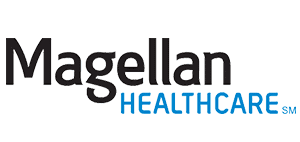Stimulants are a class of drugs that enhance alertness, attention, and energy by increasing activity in the central nervous system. Commonly used stimulants include caffeine, nicotine, and prescription medications like Adderall and Ritalin, as well as illicit drugs such as cocaine and methamphetamine. While stimulants can be beneficial for treating conditions like ADHD and narcolepsy, they also carry the risk of abuse and addiction. Stimulant misuse can lead to serious health issues, including stimulant use disorder, making it essential to understand their effects and seek appropriate treatment for those struggling with stimulant dependency.
What Are Stimulants?
Stimulants are a group of drugs that increase activity in the central nervous system, leading to heightened alertness, energy, and focus. Common stimulants include caffeine, nicotine, and prescription medications like Adderall and Ritalin, as well as illicit substances such as cocaine and methamphetamine. While stimulants can be beneficial for treating conditions like ADHD and narcolepsy, they also pose risks of stimulant abuse and addiction. Many individuals misuse stimulants to enhance performance or experience euphoria, which can lead to serious health issues and the development of stimulant use disorder. Understanding these substances is essential for those facing substance abuse and stimulants.
Most Common Stimulant Drugs
Stimulants are a category of drugs that increase alertness, attention, and energy by enhancing the activity of the central nervous system. They can be found in both legal medications, such as those prescribed for ADHD, and illegal drugs like cocaine and methamphetamine. While stimulants can provide therapeutic benefits, they also carry a high potential for abuse and addiction, leading to serious health risks and complications.
Here are a few of the most commonly abused stimulants:
- Cocaine: A powerful stimulant derived from coca leaves, cocaine is known for its intense euphoric effects but also poses significant risks for addiction and health problems.
- Crack Cocaine: A smokable form of cocaine that produces an immediate and intense high, crack cocaine is highly addictive and can lead to severe health issues.
- Methamphetamine: Often referred to as crystal meth, this potent form of methamphetamine is known for its long-lasting effects and high potential for addiction.
- Ecstasy/MDMA: A synthetic drug that combines stimulant and hallucinogenic properties, ecstasy can produce feelings of euphoria and heightened sensory experiences but also carries risks for addiction and serious health complications.
Prescription stimulant medications are commonly used to treat ADHD but can be misused for their stimulant effects. These include:
- Adderall: A prescription stimulant that combines amphetamine salts, Adderall is often abused for its ability to enhance focus and energy.
- Methylphenidate: Prescribed under the brand names Ritalin and Concerta, methlyphenidate is used to treat ADHD and can lead to stimulant misuse when taken without a prescription or any way other than as prescribed.
- Vyvanse: A long-acting stimulant medication, Vyvanse also contains amphetamine and is commonly abused to improve focus and productivity. Prescribed as an extended release form of the drug, people may break open the capsule and crush the medication in abuse it.
How Do Stimulants Affect the Body and Mind?
Stimulants significantly impact both the body and mind by increasing the activity of neurotransmitters, especially dopamine and norepinephrine. This leads to heightened alertness, energy, and mood elevation. However, stimulant abuse can result in harmful effects, including physical health risks and mental health issues. Understanding these effects is crucial for individuals facing stimulant use disorder or seeking treatment for stimulant addiction.
Physical Effects of Stimulants
Stimulants can have certain physical effects on the body such as:
- Increased heart rate and blood pressure
- Elevated body temperature
- Decreased appetite
- Insomnia or sleep disturbances
- Risk of seizures or stroke at high doses
Overdose in extreme cases
Mental and Behavioral Effects of Stimulants
In addition to physical effects, stimulants can cause the following mental and emotional effects:
- Euphoria or heightened mood
- Increased anxiety and paranoia
- Impaired judgment and decision-making
- Aggressive behavior or irritability
- Potential for addiction and withdrawal symptoms
What Are the Long-Term Risks of Stimulant Abuse?
Long-term stimulant abuse can lead to serious and lasting effects on both the body and mind. Over time, stimulants can cause cardiovascular issues, such as high blood pressure and irregular heartbeats, as well as gastrointestinal problems and weight loss. Mentally, prolonged use may result in anxiety, paranoia, and cognitive impairments. Additionally, individuals may experience stimulant withdrawal symptoms when not using the drug, further complicating recovery efforts and increasing the risk of developing a stimulant use disorder. Understanding these risks is vital for those seeking help for stimulant addiction.
Need Help For Stimulant Addiction?
Our admissions team is available around the clock to help you or a loved one get the help you need.
Professional Treatment for Stimulant Addiction
Professional treatment for stimulant addiction is essential for individuals seeking to overcome their dependence on substances like cocaine and methamphetamine. The process typically begins with a comprehensive assessment by addiction specialists, who develop a personalized treatment plan. Expert help is crucial, as it provides access to evidence-based therapies and support systems that significantly improve recovery outcomes. This structured approach helps individuals manage withdrawal symptoms, learn coping strategies, and address underlying issues related to stimulant abuse.
Stimulant Detox
Stimulant detox is the initial phase of treatment where individuals undergo a supervised process to rid their bodies of stimulants. This phase helps manage withdrawal symptoms and prepares individuals for ongoing therapy.
Stimulant Withdrawal Symptoms
Withdrawal symptoms from stimulants can include:
- Fatigue
- Depression
- Increased appetite
- Anxiety
- Intense cravings
These symptoms can be challenging but are typically temporary as the body adjusts to functioning without the drug.
Inpatient Treatment for Stimulant Abuse
Inpatient treatment provides 24-hour care in a structured environment, allowing individuals to focus solely on their recovery. This setting offers medical supervision, therapy sessions, and support from professionals and peers, enhancing the chances of successful rehabilitation.
Outpatient Treatment for Stimulant Abuse
Outpatient treatment allows individuals to receive care while living at home. This flexible option includes therapy sessions and support groups, enabling patients to maintain their daily responsibilities while working on their recovery goals.
Therapies for Stimulant Abuse
Therapies for stimulant abuse focus on helping individuals overcome their addiction to substances like cocaine and methamphetamine. These treatments often combine evidence-based psychotherapy with holistic approaches to address the physical, emotional, and psychological aspects of addiction. Professional support is crucial in guiding individuals through recovery, helping them develop coping skills and healthier habits.
Evidence-based Psychotherapy for Stimulant Abuse
Evidence-based psychotherapy includes various therapeutic techniques like cognitive behavioral therapy (CBT) that have been proven effective in treating stimulant use disorder. These methods focus on changing negative thought patterns and behaviors associated with stimulant abuse.
Holistic Treatments for Stimulant Abuse
Holistic approaches for stimulant addiction are often used in conjunction with other treatments. Some common ones include:
- Mindfulness and Meditation: Practices that promote relaxation and self-awareness, helping individuals manage cravings.
- Yoga: Physical activity that reduces stress and improves mental clarity, supporting overall well-being.
- Art Therapy: Creative expression that allows individuals to explore emotions and experiences related to their addiction.
- Nutritional Counseling: Guidance on healthy eating habits to support physical recovery and overall health.

Dual Diagnosis Treatment for Co-occurring Disorders
Dual diagnosis treatment addresses both stimulant addiction and any co-occurring mental health disorders, such as:
- ADHD
- Narcolepsy
- Anxiety
- Depression
This integrated approach ensures that both issues are treated simultaneously, improving the chances of successful recovery and long-term wellness.
Does Insurance Pay for Stimulant Addiction Treatment?
We understand that covering treatment costs can be a concern, which is why Vogue Recovery Center works with most major insurance providers to make the process easy and stress-free. By verifying your insurance with us, we’ll handle the details with your provider so you can focus on recovery.
Wondering if your insurance covers detox and rehab for stimulant addiction? Fill out our free, secure insurance verification form or call us today. Our team will help you navigate your insurance benefits and coverage. At Vogue Recovery Center, we’ve helped many individuals overcome substance use disorders, and we’re here to help you take the first step toward a healthier future.
Get Help for Stimulant Addiction
Struggling with stimulant addiction can feel overwhelming, but seeking help is the first step toward recovery. When searching for a treatment center, look for one that specializes in addressing stimulant abuse and offers comprehensive programs tailored to meet your unique needs. At all of our Vogue Recovery Center facilities, you’ll find experienced staff and a supportive environment dedicated to helping you achieve sobriety.
Use our secure contact form or call our 24/7 admissions department to discuss treatment options and begin confidently navigating your road to recovery. Remember, every conversation is private and confidential, adhering to strict HIPAA guidelines. Reach out to Vogue Recovery Centers today and start the journey towards your new life
- Stimulants – StatPearls
- Stimulants – NIDA
- Stimulants – DEA.gov
- Stimulants – Alcohol and Drug Foundation
- Chapter 2—How Stimulants Affect the Brain and Behavior – NIH
- Treatment of Stimulant Use Disorder – SAMHSA
- Stimulant Withdrawal – NIH
- Co-occurring Disorders and Other Health Conditions – SAMHSA
- Stimulant Overdose | Overdose Prevention | CDC
- Stimulant Abuse: Pharmacology, Cocaine, Methamphetamine, Treatment, Attempts at Pharmacotherapy – PMC








